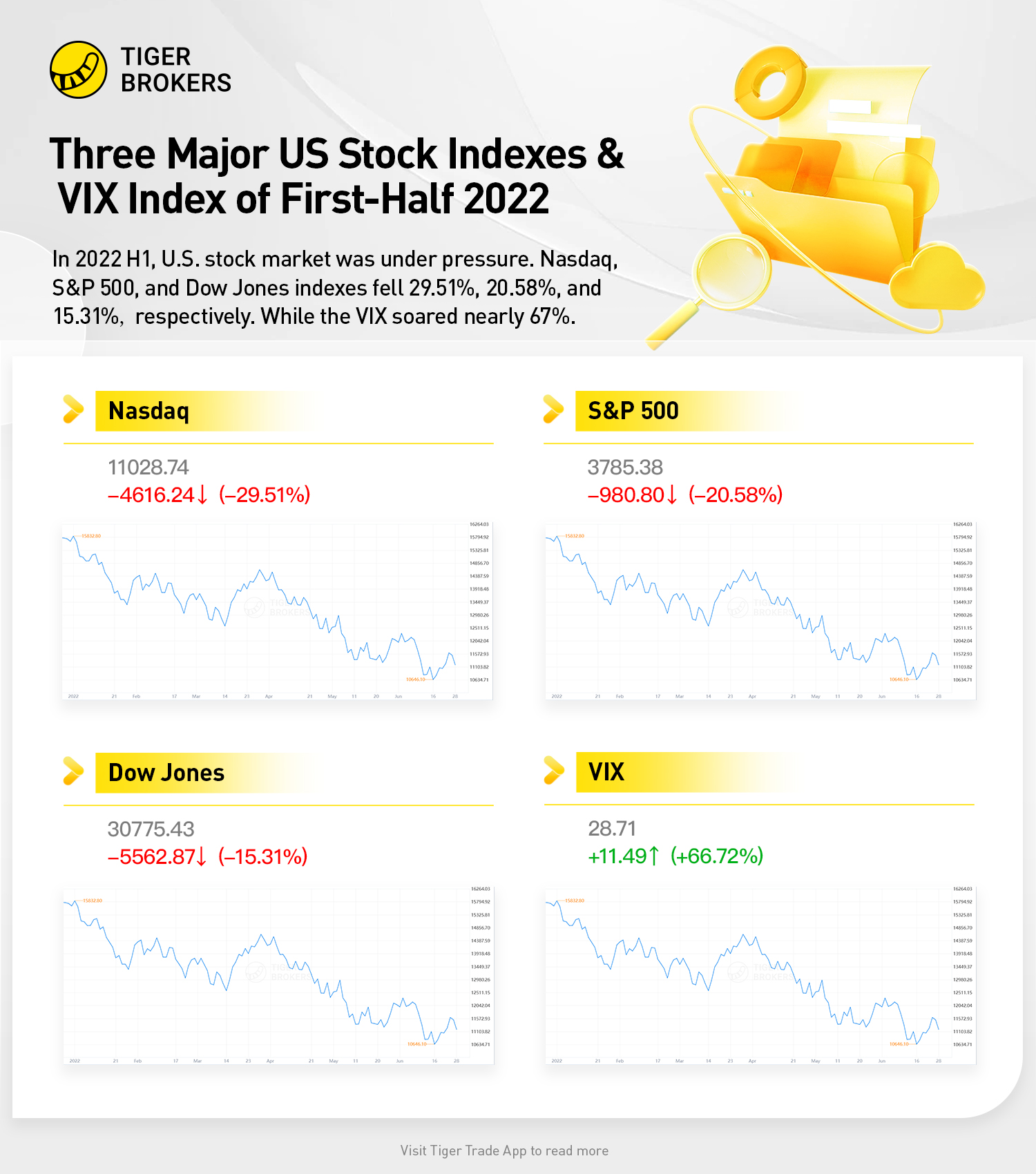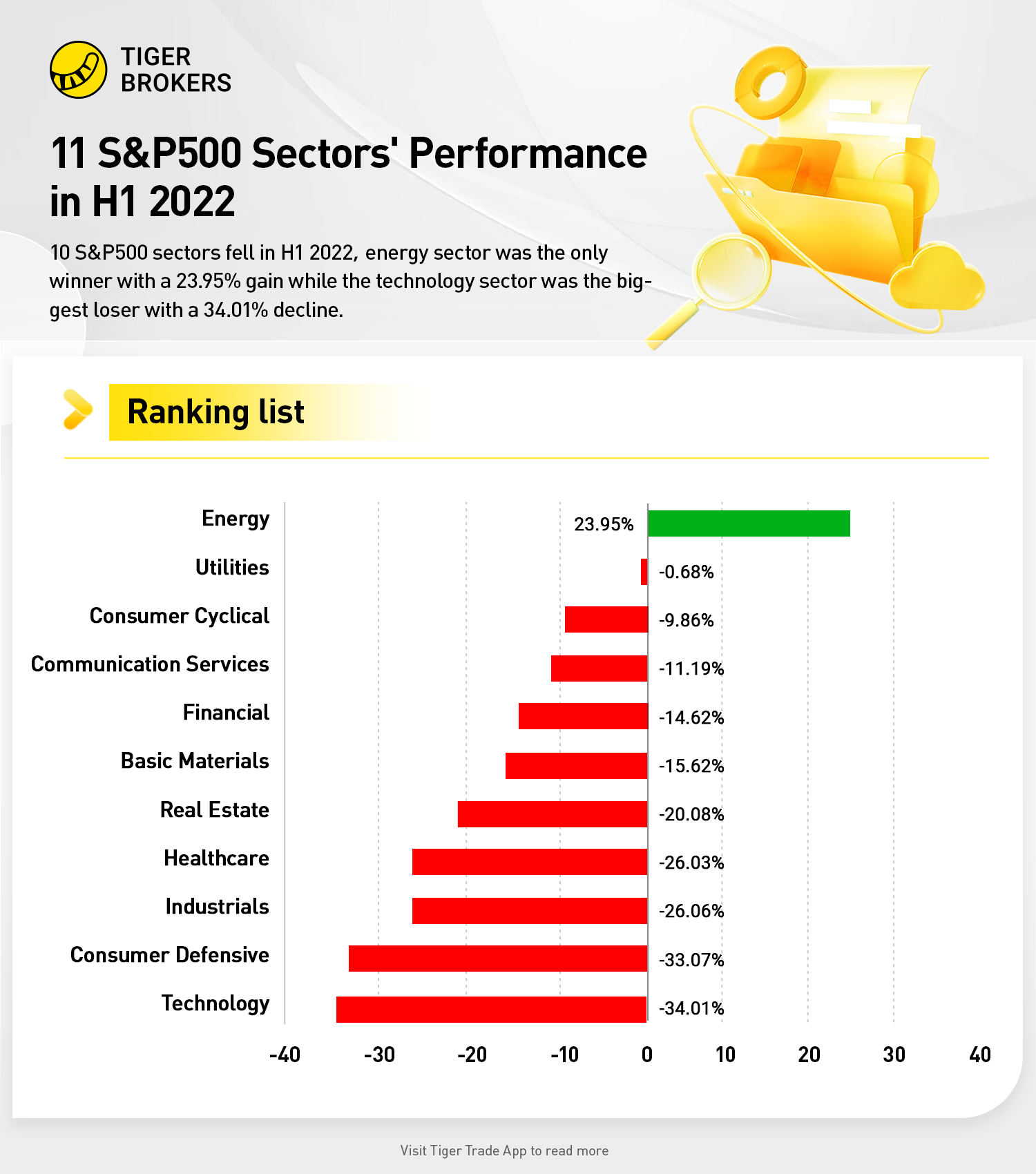In 2022 H1, it began with spiking cases of COVID-19 due to the Omicron variant, then came Russia - Ukraine war, decades-high inflation and aggressive interest rate hikes from the Federal Reserve, all three major U.S. stock indexes ended in negative territory, with the S&P 500 declining 20.58%, notching its steepest first-half percentage drop since 1970.
The Nasdaq had its largest-ever January-June percentage drop tumbling 29.51%, while the Dow suffered its biggest first-half percentage plunge since 1962, crashing 15.31%.
Meanwhile, VIX soared nearly 67% in H1 2022.

From the perspective of 11 S&P500 sectors, energy was the only winner with a 23.95% gain, aided by crude prices spiking oversupply concerns due to Russia-Ukraine conflict.
Meanwhile, five S&P500 sectors fell over 20% in H1 2022, the technology sector was the biggest loser with a 34.01% decline due to the Fed's rate hikes.

"I think it’s very unlikely that we’ll see a soft landing," Kim added.
Nvidia, Tesla and Amazon Crashed Over 30% in H1 2022 As Recession Fears Rose
Mega-cap companies also experienced a hard time in H1 2022. Nvidia was the biggest loser in the top 10 U.S. companies, tumbling 48.46%; Tesla was kicked out of the $1 trillion clubs after crashing 36.29%, Apple, Microsoft, Alphabet and Amazon slid 20%. However, UnitedHealth and J&J were the winners by rising 2.29% and 3.76%, separately.
Moreover, Tesla and SpaceX CEO Musk spoke about the possibility of an upcoming recession. He expected the economy to suffer for 12 to 18 months and noted that companies with a negative cash flow needed to fold in order for this to happen so that they can "stop consuming resources."
Musk himself is feeling the pressure— in early June, he wrote an email to Tesla employees saying he had a "super bad feeling" about the state of the economy and planned to cut 10% of the company's total workforce.
This week, Chief executive Mark Zuckerberg delivered the news to employees delivering a pointed warning that coincides with a wave of layoffs at Australian startups.
“If I had to bet, I’d say that this might be one of the worst downturns that we’ve seen in recent history,” said Zuckerberg.
Meta had initially planned to hire 10,000 new engineers in 2022, Zuckerberg said. In addition to reducing hiring, the company was leaving certain positions unfilled in response to attrition and “turning up the heat” on performance management to weed out staffers unable to meet more aggressive goals, he said. “Realistically, there are probably a bunch of people at the company who shouldn’t be here,” Zuckerberg said.
Comments